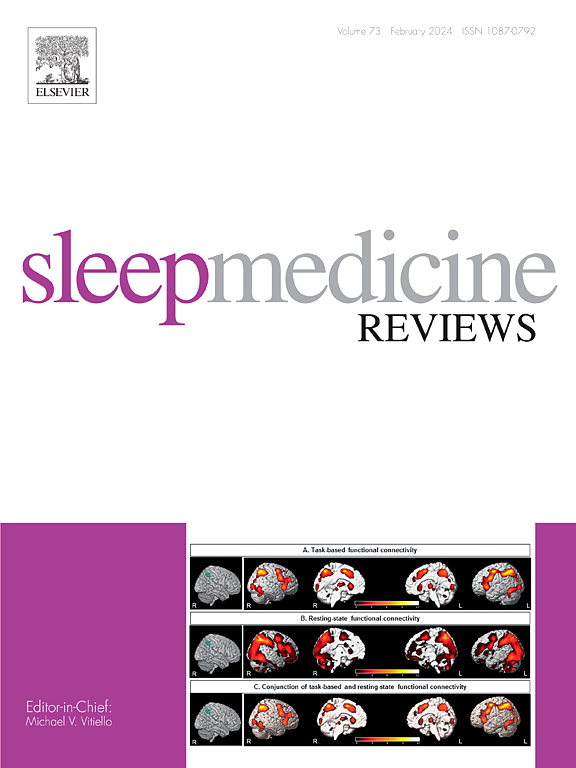Proposing a definition for sleep disorders: An epistemological review
IF 11.2
1区 医学
Q1 CLINICAL NEUROLOGY
引用次数: 0
Abstract
To establish an overarching definition of what constitutes a sleep disorder, it is essential to know which health conditions should be included in the classifications of sleep disorders and to better distinguish the normal from the pathological in sleep medicine. This would bring together several professional organizations in their understanding of this hitherto heterogeneous concept. However, no consensus regarding a general definition of a sleep disorder currently exists. We explore two of the main frameworks used in medical epistemology that could be used to define sleep disorders rigorously: harmful dysfunction analysis (HDA) and symptom network theory. For each framework, we detail the conceptual background, the method for applying it to the establishment of a general definition of a sleep disorder, the application to main sleep disorders of the ICSD-3-TR (with an emphasis on insomnia disorder) and a discussion of the main aspects of these two general definitions in the context of sleep medicine. The complementarity between the two definitions could then be considered as an “epistemic hub” which could serve to clarify the debate about what sleep disorders are, so that our understanding of them and their clinical management improve.
提出睡眠障碍的定义:认识论回顾。
要对什么是睡眠障碍做出总体定义,就必须知道哪些健康状况应被纳入睡眠障碍的分类中,并更好地区分睡眠医学中的正常与病理。这将汇集多个专业组织对这一迄今尚未统一的概念的理解。然而,目前还没有就睡眠障碍的一般定义达成共识。我们探讨了医学认识论中可用于严格定义睡眠障碍的两个主要框架:有害功能障碍分析(HDA)和症状网络理论。对于每种框架,我们都会详细介绍其概念背景、将其应用于建立睡眠障碍一般定义的方法、将 ICSD-3-TR 应用于主要睡眠障碍的情况(重点是失眠障碍),并讨论这两种一般定义在睡眠医学中的主要方面。这两个定义之间的互补性可被视为一个 "认识论枢纽",有助于澄清关于睡眠障碍的争论,从而提高我们对睡眠障碍的认识和临床治疗水平。
本文章由计算机程序翻译,如有差异,请以英文原文为准。
求助全文
约1分钟内获得全文
求助全文
来源期刊

Sleep Medicine Reviews
医学-临床神经学
CiteScore
20.10
自引率
3.80%
发文量
107
期刊介绍:
Sleep Medicine Reviews offers global coverage of sleep disorders, exploring their origins, diagnosis, treatment, and implications for related conditions at both individual and public health levels.
Articles comprehensively review clinical information from peer-reviewed journals across various disciplines in sleep medicine, encompassing pulmonology, psychiatry, psychology, physiology, otolaryngology, pediatrics, geriatrics, cardiology, dentistry, nursing, neurology, and general medicine.
The journal features narrative reviews, systematic reviews, and editorials addressing areas of controversy, debate, and future research within the field.
 求助内容:
求助内容: 应助结果提醒方式:
应助结果提醒方式:


